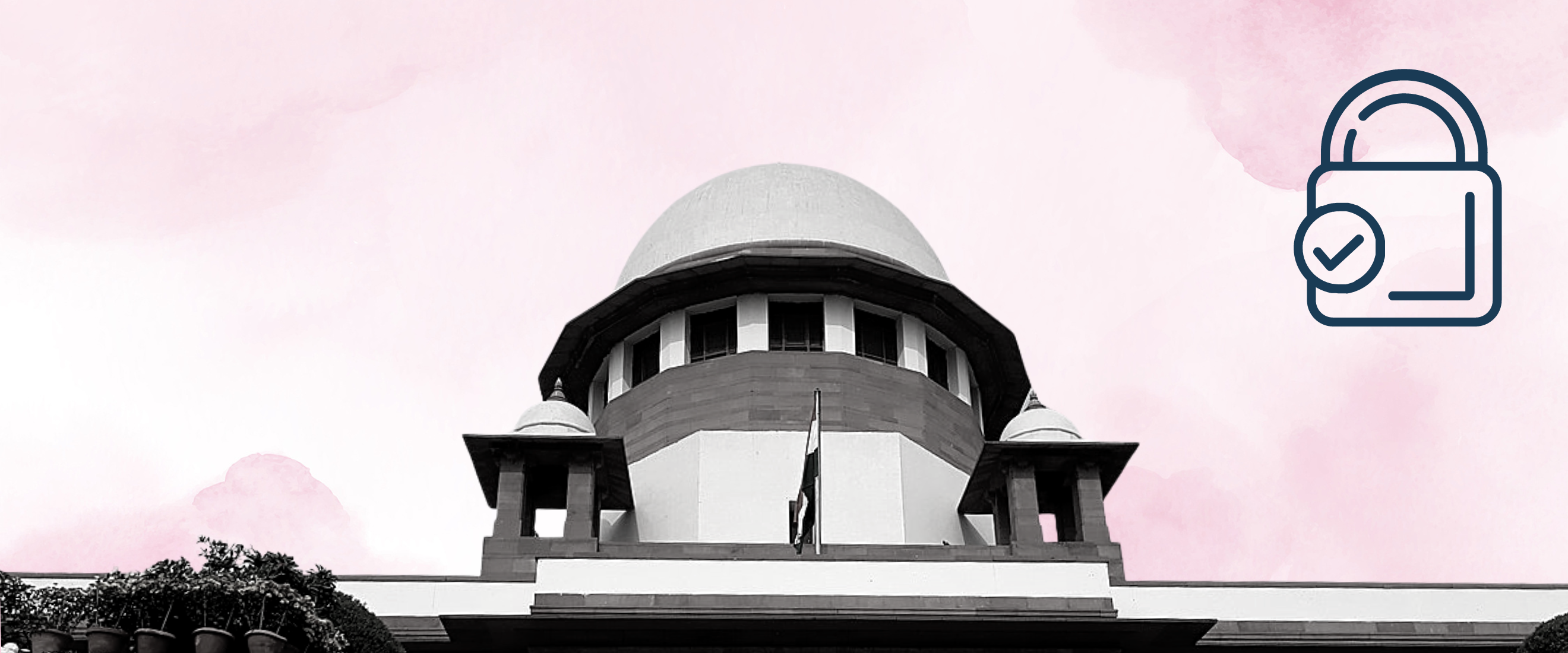Analysis
SCO Shorts: Right to Privacy
The Supreme Court delivered a landmark Judgment recognising the Right to Privacy as a Fundamental Right under the Constitution

Five years ago today, on August 24th, 2017, a nine-Judge Bench of the Supreme Court led by former Chief Justice of India, J.S. Khehar, delivered the Judgment in Justice K.S. Puttaswamy v Union of India. The Bench unanimously recognised the Right to Privacy as a fundamental right guaranteed by the Constitution of India, 1950.
Background
In 2012, former Justice K.S. Puttaswamy, a retired Judge of the Karnataka High Court, filed a writ petition at the Supreme Court challenging the constitutional validity of the Aadhaar Scheme. The petition, among other things, argued that the government did not place adequate safeguards to protect personal information of citizens. The Government argued that there was no fundamental Right to Privacy enshrined in the Constitution.
On August 11th, 2015, a three-Judge Bench of the Supreme Court passed an Order directing a Bench of the appropriate strength to decide whether there is a fundamental Right to Privacy. The matter was first placed before a five-Judge Bench led by former CJI J.S. Khehar, but was subsequently referred to a nine-Judge Bench on July 18th, 2017.
The Bench
The nine-Judge Bench hearing the case comprised former Chief Justice J.S. Khehar and Justices Jasti Chelameshwar, S.A. Bobde, D.Y. Chandrachud, Abdul Nazeer, F.S. Nariman, R.K. Agarwal, A.M. Sapre, and S.K. Kaul.
Petitioner’s Arguments
The Aadhaar petition challenged the lack of privacy safeguards for the use of biometric data collected under the Aadhaar Scheme. In Puttaswamy, the Court heard further arguments pertaining to the Right to Privacy.
Senior Advocate Kapil Sibal, on behalf of former Justice Puttaswamy, argued that the Right to Privacy was not merely the right to be left alone, but instead included one’s physical being, thoughts, interpersonal relationships, private communication, information, and data. It is an intrinsic part of the Right to Life and Personal Liberty guaranteed under Article 21 of the Constitution of India, 1950.
Respondent’s Arguments
Attorney General of India, K.K. Venugopal, representing the Union of India, argued that the Constitution did not explicitly mention the Right to Privacy as a fundamental right. Therefore, the Right to Privacy was not an absolute right, and could only be recognised to a limited extent.
Why it Matters
Puttaswamy has led to substantial developments with regard to the right to self-determination, homosexuality, adultery, religion, marriage and freedom of choice.
Prior to Puttaswamy, the Right to Privacy was not recognised as a fundamental right. Earlier Supreme Court decisions—M.P. Sharma v Satish Chandra (1954), which involved questions over police powers of search and seizure and the right against self-incrimination, and Kharak Singh v State of Uttar Pradesh (1962), which involved questions of State surveillance—did not recognise privacy as an absolute right. In both instances, the Court held that invasion of an individual’s privacy is not an infringement of fundamental rights.
Puttaswamy, having emerged from a case challenging the collection of sensitive personal data, gave specific focus to digital privacy. The Court acknowledged the need to ‘impart constitutional meaning to individual liberty in an interconnected world’.
What did the Court Decide?
The Court held that the sanctity of privacy lies in its functional relationship with dignity and that the Right to Privacy is inalienable to human existence. Accordingly, the Bench recognised the Right to Privacy as a fundamental right under Article 21 of the Constitution.
It held that the State is duty-bound to protect the privacy of an individual and directed the Central government to establish a robust regime to ensure the protection of the Right to Privacy. All restraints on privacy must be lawful and reasonable.
The Bottom Line
The recognition of the right to privacy as a fundamental right has formed a basis for claiming other crucial personal rights. In Navtej Singh Johar v Union of India, which decriminalised homosexuality, and in Joseph Shine v Union of India, which decriminalised adultery, the Supreme Court based its decisions on the Right to Privacy and Personal Liberty.
Despite five years having passed since the Judgment, the Parliament is yet to finalise a Data Protection Bill. Most recently, on August 3rd, 2022, in the monsoon session of the Lok Sabha, The Personal Data Protection Bill, 2019, was withdrawn. India does not have any law that specifically deals with data protection.
Dig Deeper
Judgment of the Court in Plain English (I)
Judgment of the Court in Plain English (II)
